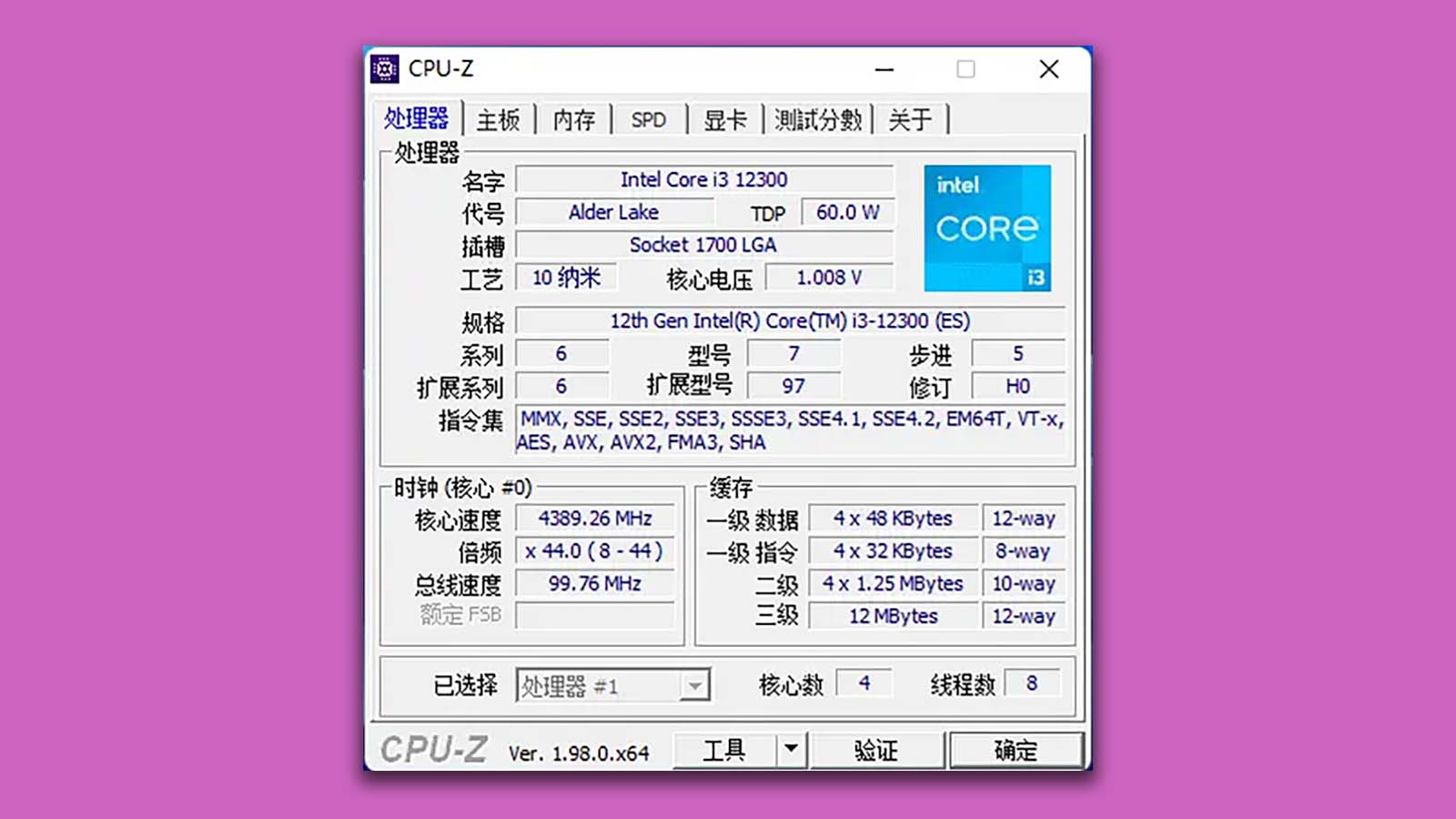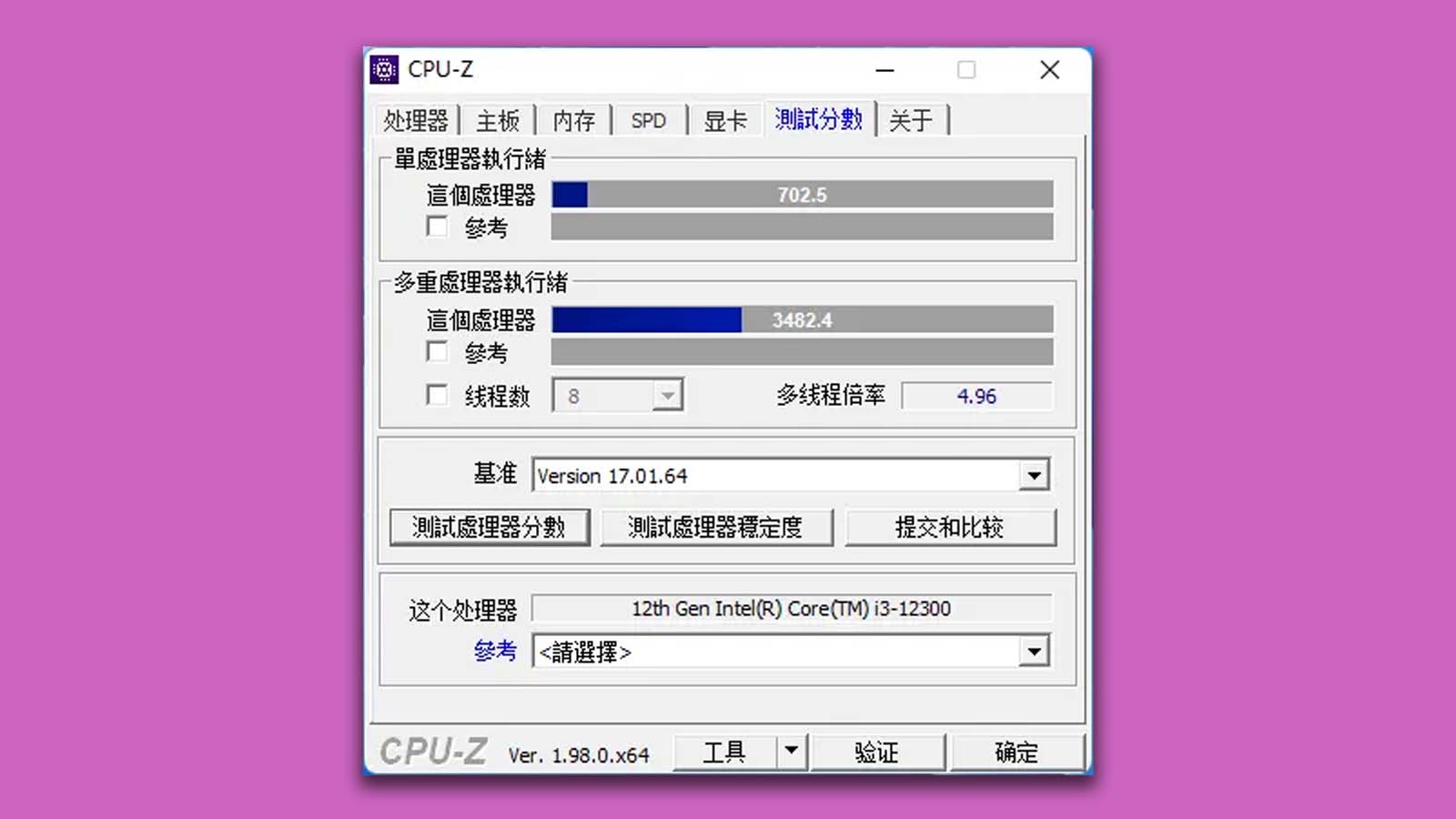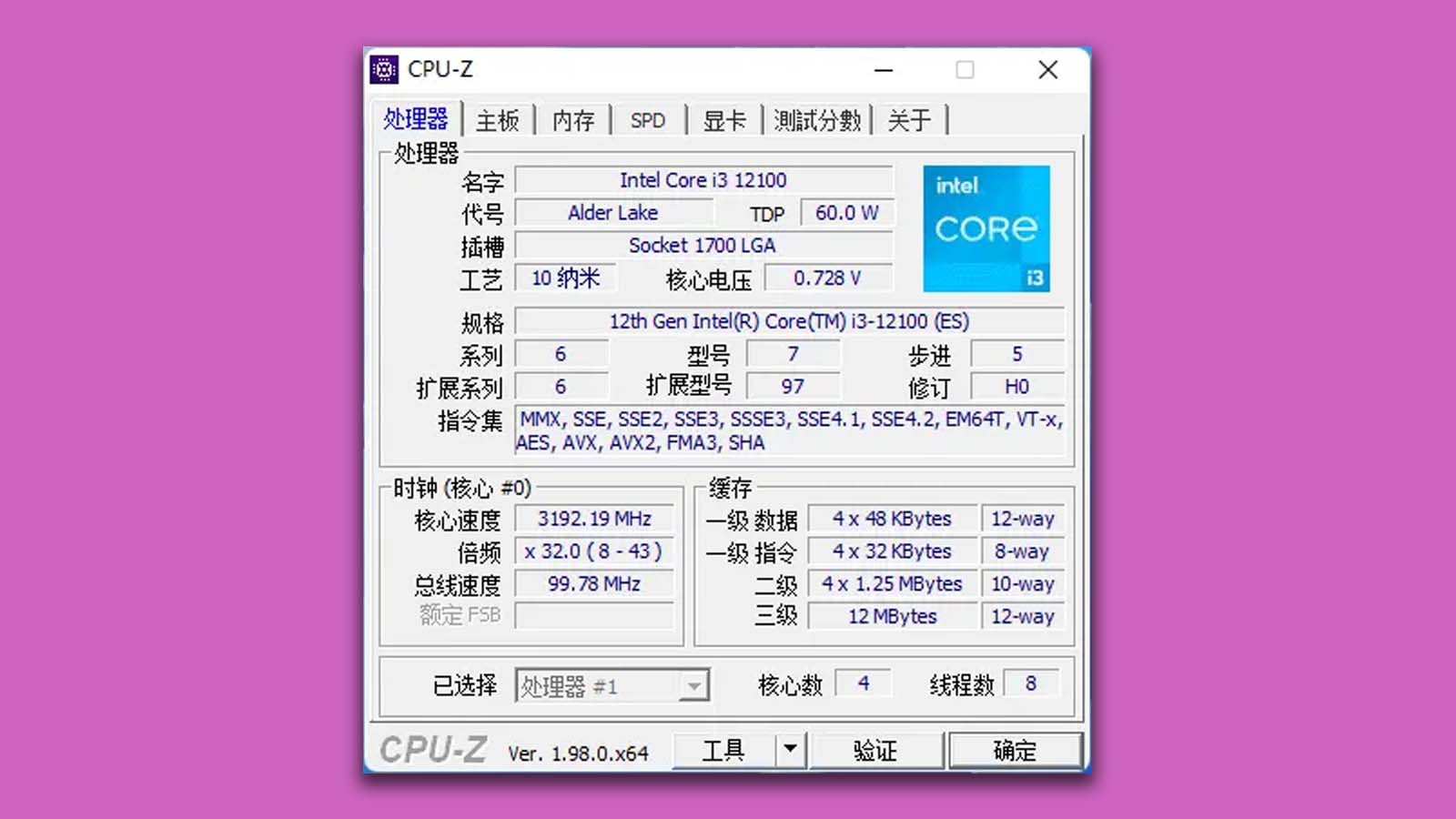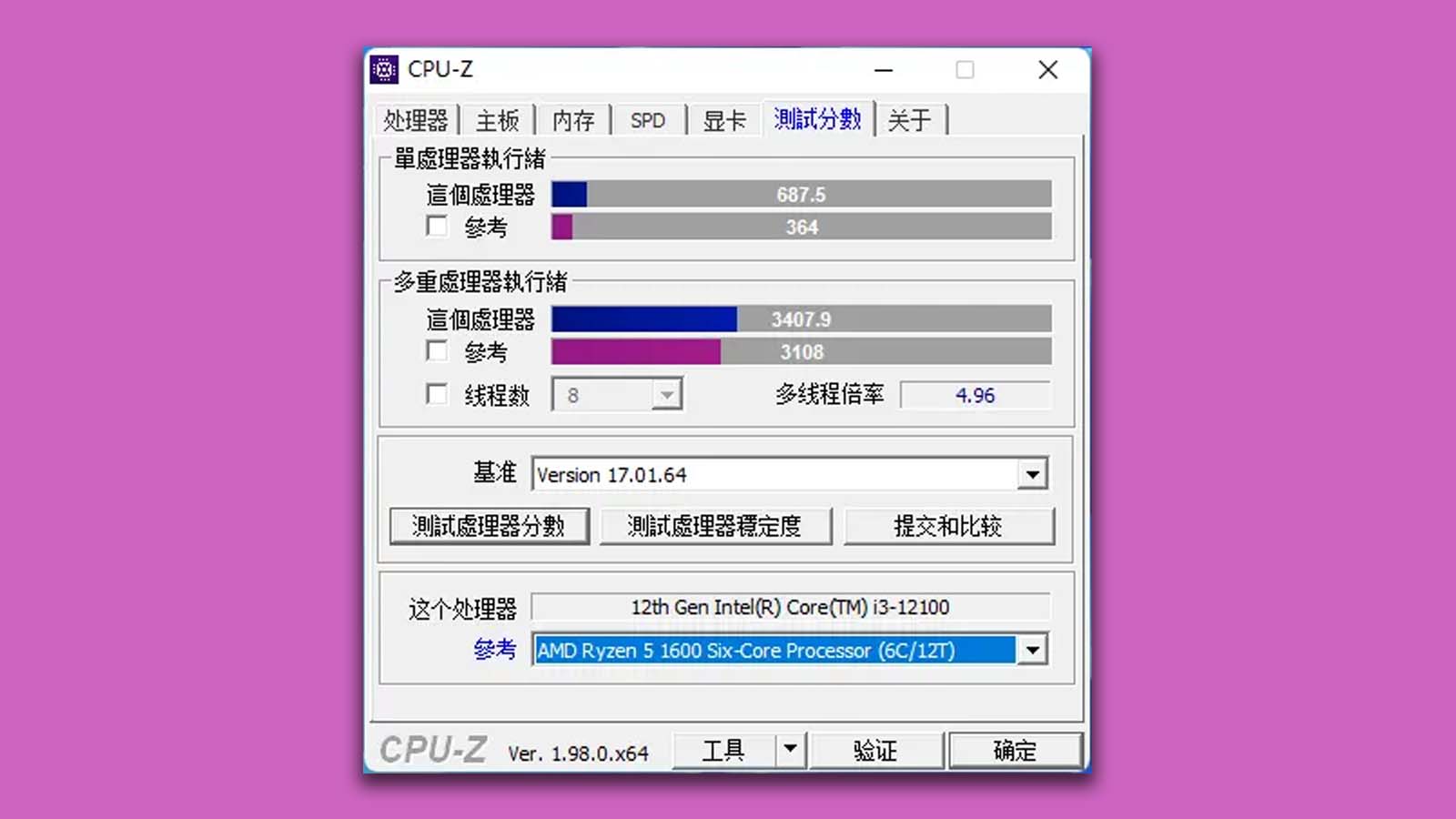Intel’s new Alder Lake processors have been hailed as a major return to form for the processor pioneer, but if a new benchmark leak is any indication, its upcoming budget processors might be an even more exciting development.
The benchmarks appeared on the Chinese video streaming and social media platform Bilibili, posted by user Enthusiastic Citizen Stroke Monster. The photos appear to show results of CPU-Z and Cinebench R20 benchmarks of an Intel Core i3-12300 and an Core i3-12100, both of which have yet to be confirmed by Intel, and the scores are very impressive.






While the multicore scores are decent for four-core, eight-thread Core i3 processors, what really jumps out is the single-core performance of the processors.
The Core i3-12300 CPU scores 702 in single core performance according to CPU-Z, while the Core i3-12100 chip scores a slightly lower 687.5. In Cinebench R20, the results are more or less the same, with the i3-12300 scoring 665, while the i3-12100 scores a 649.
To put these scores in context, these are better single-core scores than AMD’s entire Zen 3 lineup, even though the i3-12300 is likely to sell for about $150 (about £115/AU$210), with the i3-12100 expected to sell for about $100 (about £80/AU$140).
These are definitely budget processors, but if these benchmarks bear out, they are definitely punching above their weight class.
Analysis: these chips could be game-changing for entry-level PC builds
It needs to be stressed that we haven’t validated these Core i3 benchmarks ourselves, so they need to be treated with some healthy skepticism. But if they do end up being accurate, then budget PC builds are about to get a lot more interesting.
Single-core performance is really important for CPU intensive tasks like gaming and multimedia content creation. While no one should expect these chips to appear in any serious workstation PC, a high single-core score could make a huge difference for budget gaming PCs.
In the leaked screengrabs, Wccftech spotted that the chips run pretty cool and use less than 65W, meaning they are very energy efficient and likely won’t need any significant cooling solutions, something we’re sure will delight any fan of passive-cooling PC builds.
We’ll have to wait until we get our hands on the chips ourselves to know for sure, but we are definitely excited to dig in ourselves and have a look.
- AMD vs Intel: which chipmaker does processors better?

















